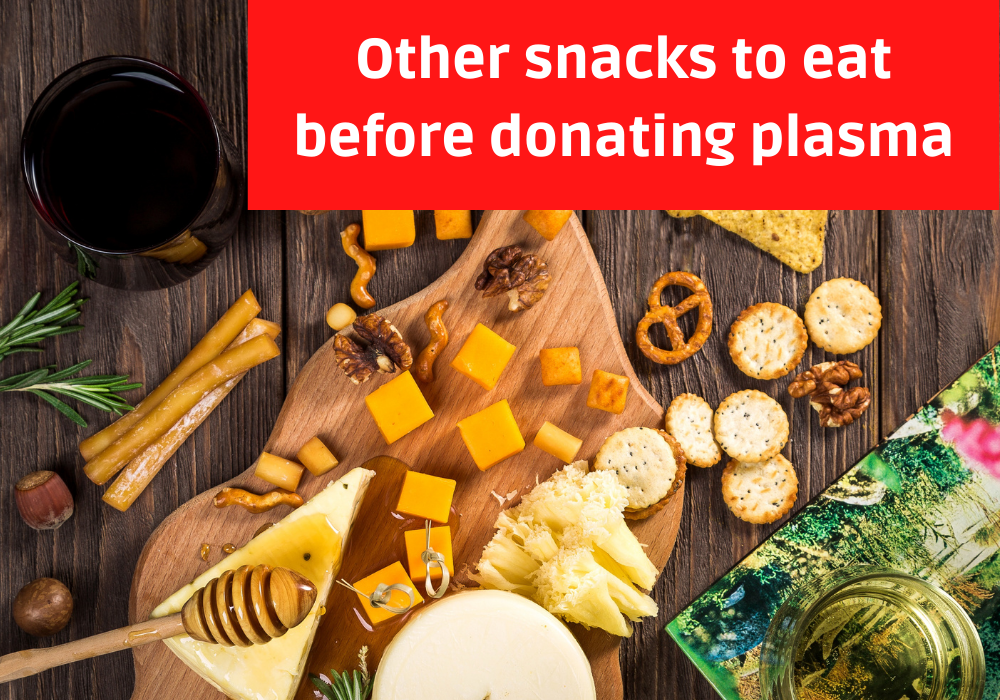Guidelines for donating plasma and what you can expect before?
What helps plasma donation go faster?
A lot of peoples what helps plasma donation go faster ,for people who have a higher than average blood plasma level, donation is a great way to help those in need while also making some extra cash. The process can take up to an hour, but there are ways to make it go by faster. This article will teach you everything you need to know about how to make your plasma donation go quicker and with less discomfort.
The process of plasma donation
Donating plasma is a process where blood is drawn from the body and the plasma is separated out. The plasma is then used for transfusions and other medical purposes. The process of donating plasma is similar to giving blood, but takes a bit longer.
There are a few things that you can do to help make the process of donating plasma go faster. First, make sure that you are well hydrated before you go in to donate. Drinking plenty of fluids will help your blood flow more easily and make it easier for the staff to draw your blood.
Second, try to relax while you are donating. It can be helpful to close your eyes and take slow, deep breaths. This can help to reduce any anxiety you may be feeling and make the whole process go more smoothly.
Finally, be sure to follow all of the instructions that the staff gives you. They are there to help ensure that the donation process goes as safely and quickly as possible. If you have any questions, just ask them – they will be happy to help.
What factors help plasma donation go faster?
There are a few things that can help make your plasma donation go faster. First, try to relax and stay calm during the process. It can help if you drink plenty of fluids beforehand and avoid caffeine on the day of your donation. Also, be sure to eat a healthy meal before you donate to help keep your energy levels up. Finally, if you have any questions or concerns, be sure to ask the staff at the plasma center for help.
What foods help you donate plasma faster?
If you're looking to donate plasma and want to make the process go as quickly as possible, there are a few things you can do. First, make sure you're well-hydrated by drinking plenty of water in the days leading up to your donation. Eating a healthy diet is also important, as certain foods can help improve your blood flow and make it easier for the plasma to be extracted. Try incorporating foods like leafy greens, salmon, avocados, and nuts into your diet in the days before you donate. Finally, avoid caffeine and alcohol before donating, as they can dehydrate you and make the process take longer.
Can I eat 30 minutes before donating plasma?
Many people are interested in donating plasma but have questions about eligibility and the process. Read on to learn more about the guidelines for donating plasma and what you can expect before, during, and after your donation.
How to prepare for a plasma donation
You should eat a light meal and drink plenty of fluids before donating plasma. Avoid fatty foods, as they can make it more difficult for the plasma to be collected. You should also avoid alcohol and caffeine.
What to expect during and after a plasma donation
When you donate plasma, a medical professional will take a small amount of blood from your arm and put it into a machine that will remove the plasma. The whole process takes about 30 minutes.
Afterwards, you may feel a little lightheaded or have a small bruise on your arm where the needle was. It's important to drink plenty of fluids and eat something before you leave the center. Most centers will provide snacks and drinks for donors.
Can I eat 30 minutes before donating plasma?
Yes, you can eat 30 minutes before donating plasma. However, it is important to eat a healthy meal that is low in fat and sugar. Avoiding foods that are high in fat and sugar will help to prevent dizziness and lightheadedness during and after your donation.
is peanut butter good to eat before donating plasma
Many people are wondering if they should eat peanut butter before donating plasma. The answer is yes! Peanut butter is a great source of protein and can help you stay energized during the donation process.
What are the benefits of donating plasma?
There are many benefits to donating plasma. For one, it can help save lives. Plasma is the clear, liquid portion of blood that contains important proteins, and it can be used to treat a variety of conditions. It’s also used in research to develop new treatments and therapies.
Donating plasma is a relatively quick and easy process, and it’s something that you can do on a regular basis to make a real difference in the lives of others. Plus, it’s a great way to earn some extra money!
What are the guidelines for eating before donating plasma?
The American Red Cross provides the following guidelines for eating before donating plasma:
-Eat a normal, well-balanced meal prior to donation.
-Avoid fatty foods, such as hamburgers, french fries or ice cream, for at least four hours before giving plasma.
-You should also avoid alcohol for at least 12 hours before your donation.
-Drink plenty of fluids, such as water or juice, in the hours leading up to your donation.
Peanut butter as a pre-donation snack
If you're looking for a tasty and nutritious snack to eat before donating plasma, look no further than peanut butter! Peanut butter is packed with protein, which is essential for maintaining energy levels during the donation process. It also contains healthy fats and vitamins that can help support your immune system. Best of all, peanut butter is a delicious way to fuel up before giving the gift of life!
Other snacks to eat before donating plasma
If you're looking for something other than peanut butter to eat before donating plasma, there are a few other options. Some people recommend eating foods that are high in protein and low in fat, such as lean meats, fish, or tofu. Others suggest eating complex carbohydrates like whole grain bread or pasta. And finally, some people say that it's best to avoid sugary foods and drinks before donating plasma.
what to eat before donating blood
There are a few things to keep in mind when it comes to eating before donating blood.
- First, it's important to have a meal that is high in iron. This will help ensure that your blood donation is rich in hemoglobin.
- Second, you should avoid fatty foods, as they can increase the level of cholesterol in your blood.
- Third, eat foods that are easy to digest so that you don't feel nauseous during the donation process.
- Lastly, drink plenty of fluids to keep yourself hydrated.








